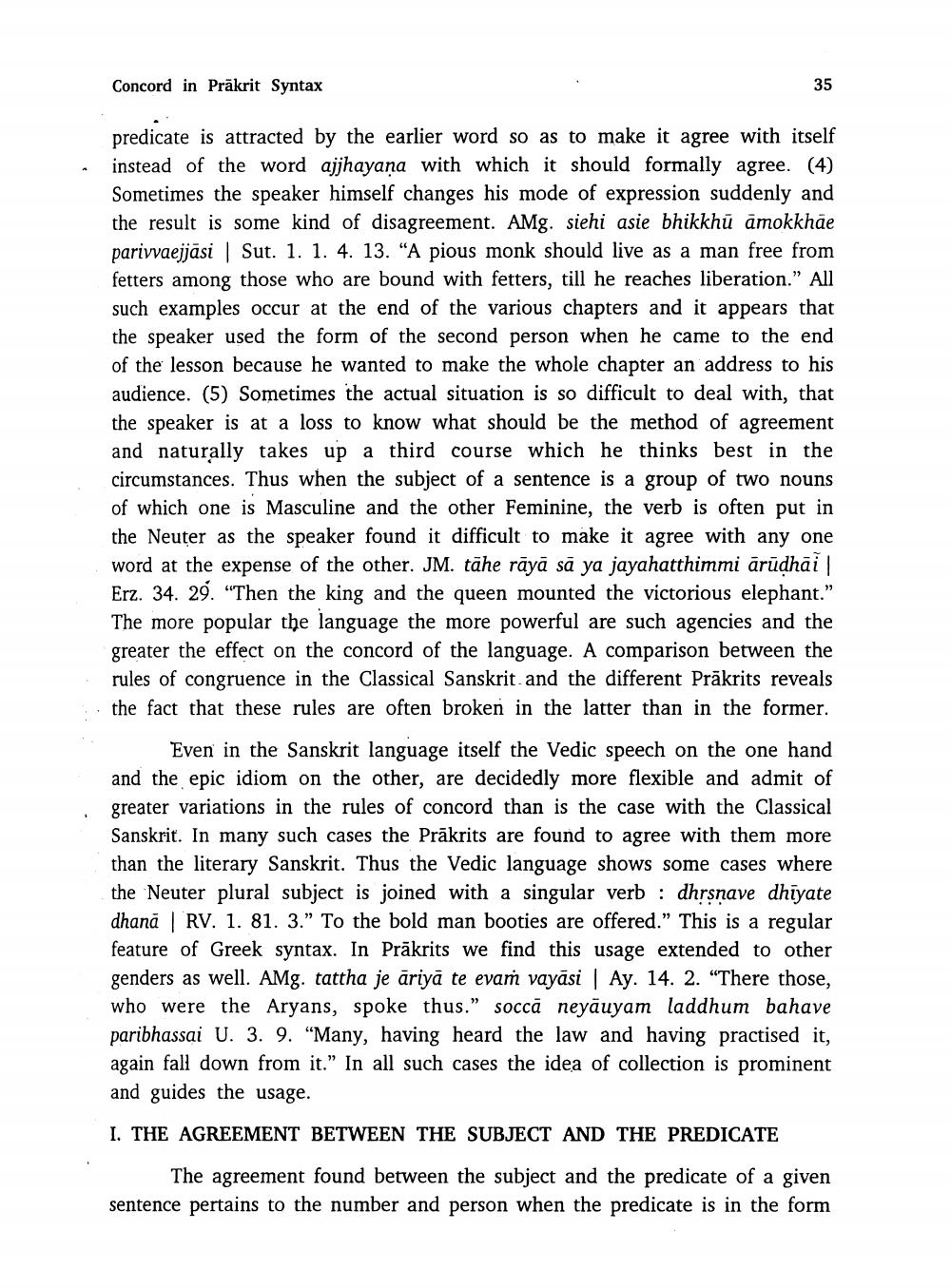________________
Concord in Prākrit Syntax
predicate is attracted by the earlier word so as to make it agree with itself instead of the word ajjhayana with which it should formally agree. (4) Sometimes the speaker himself changes his mode of expression suddenly and the result is some kind of disagreement. AMg. siehi asie bhikkhū amokkhãe parivvaejjāsi | Sut. 1. 1. 4. 13. "A pious monk should live as a man free from fetters among those who are bound with fetters, till he reaches liberation." All such examples occur at the end of the various chapters and it appears that the speaker used the form of the second person when he came to the end of the lesson because he wanted to make the whole chapter an address to his audience. (5) Sometimes the actual situation is so difficult to deal with, that the speaker is at a loss to know what should be the method of agreement and naturally takes up a third course which he thinks best in the circumstances. Thus when the subject of a sentence is a group of two nouns of which one is Masculine and the other Feminine, the verb is often put in the Neuter as the speaker found it difficult to make it agree with any one word at the expense of the other. JM. tāhe rāyā sā ya jayahatthimmi ārūdhāi Erz. 34. 29. "Then the king and the queen mounted the victorious elephant." The more popular the language the more powerful are such agencies and the greater the effect on the concord of the language. A comparison between the rules of congruence in the Classical Sanskrit and the different Prākrits reveals the fact that these rules are often broken in the latter than in the former.
Tven in
Even in the Sanskrit language itself the Vedic speech on the one hand and the epic idiom on the other, are decidedly more flexible and admit of greater variations in the rules of concord than is the case with the Classical Sanskrit. In many such cases the Prākrits are found to agree with them more than the literary Sanskrit. Thus the Vedic language shows some cases where the Neuter plural subject is joined with a singular verb : dhrsnave dhiyate dhanā | RV. 1. 81. 3." To the bold man booties are offered.” This is a regular feature of Greek syntax. In Prākrits we find this usage extended to other genders as well. AMg. tattha je āriyā te evam vayāsi | Ay. 14. 2. "There those, who were the Aryans, spoke thus." soccā neyāuyam laddhum bahave paribhassai U. 3. 9. "Many, having heard the law and having practised it, again fall down from it." In all such cases the idea of collection is prominent and guides the usage.
I. THE AGREEMENT BETWEEN THE SUBJECT AND THE PREDICATE
The agreement found between the subject and the predicate of a given sentence pertains to the number and person when the predicate is in the form




